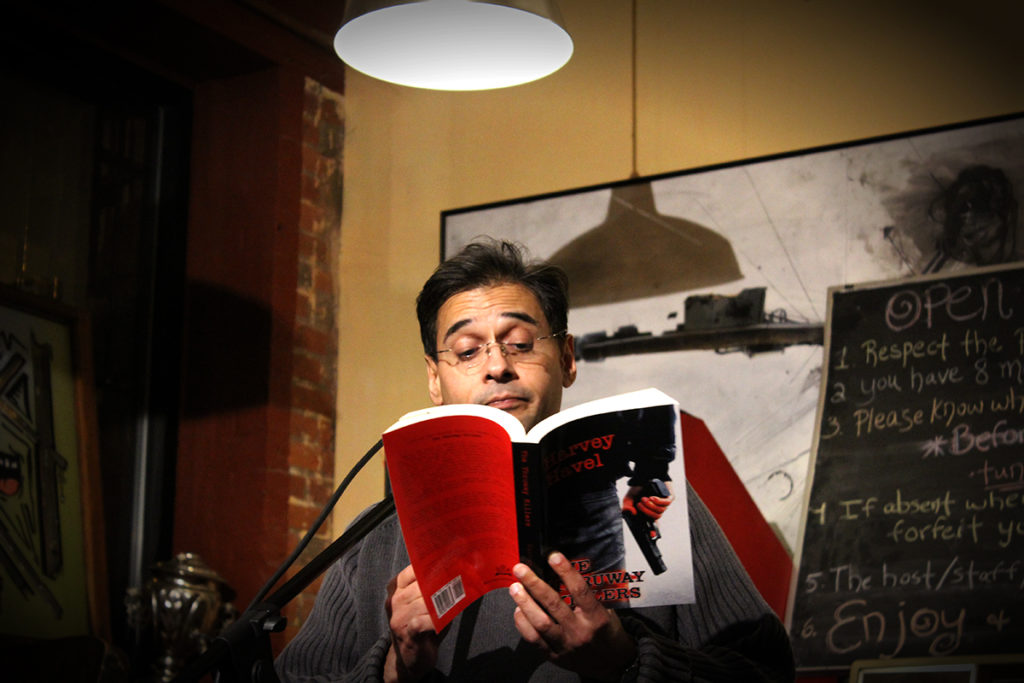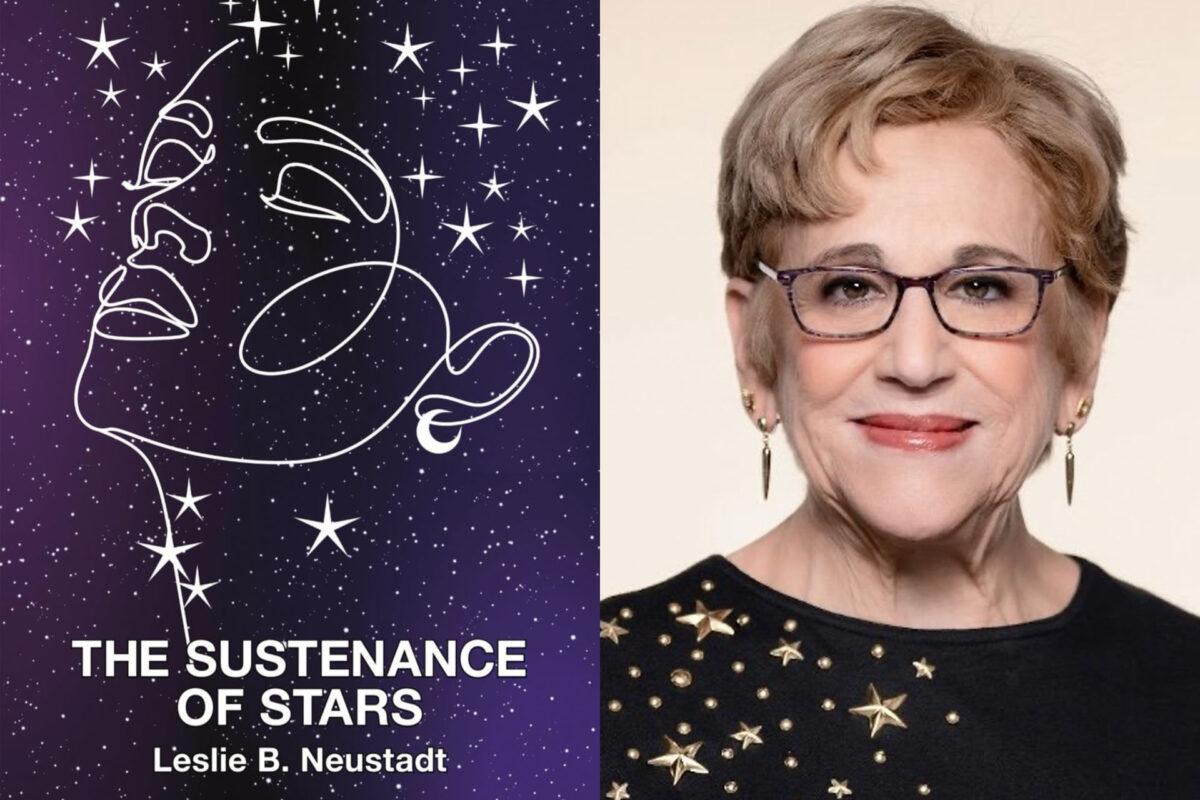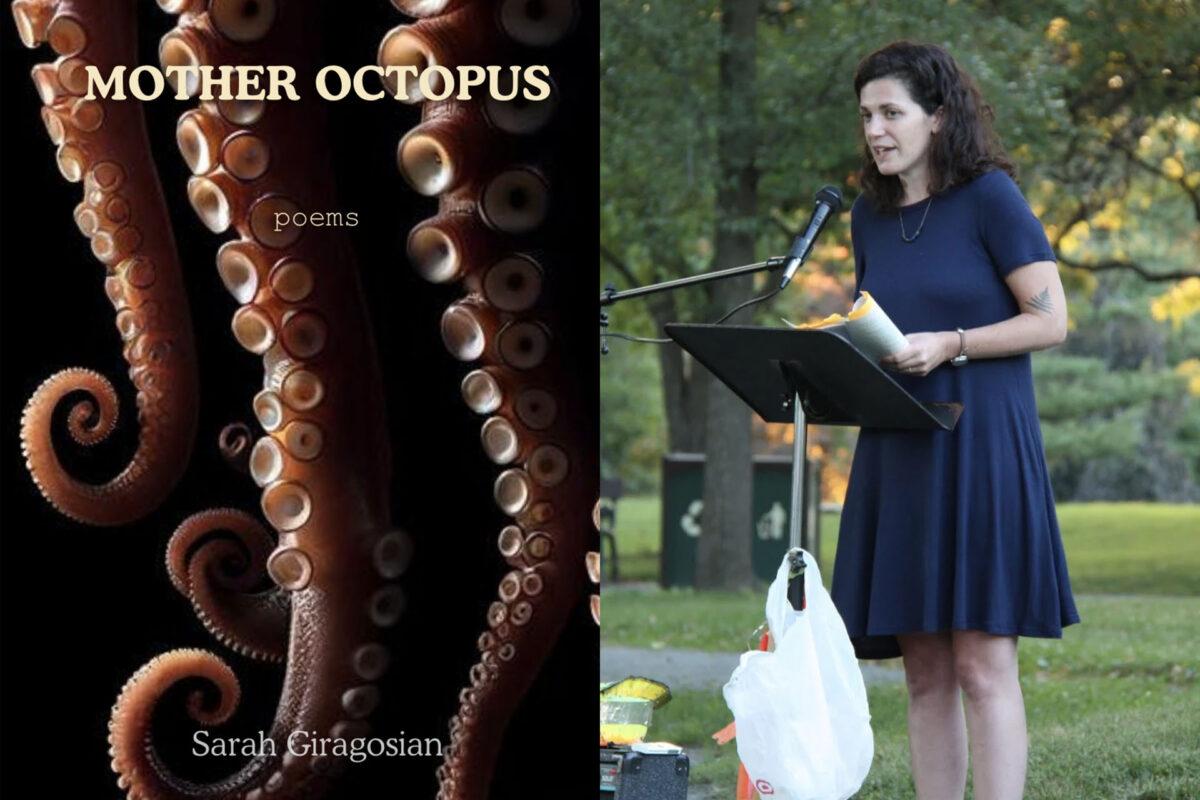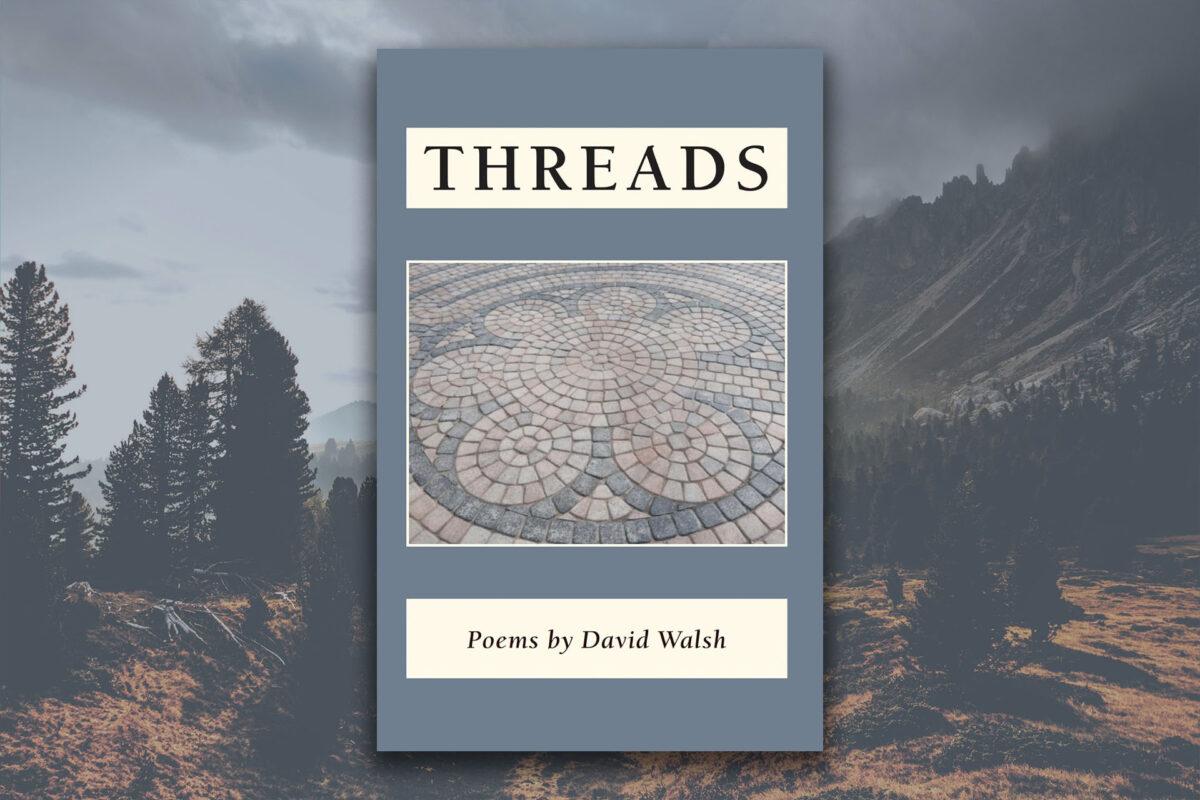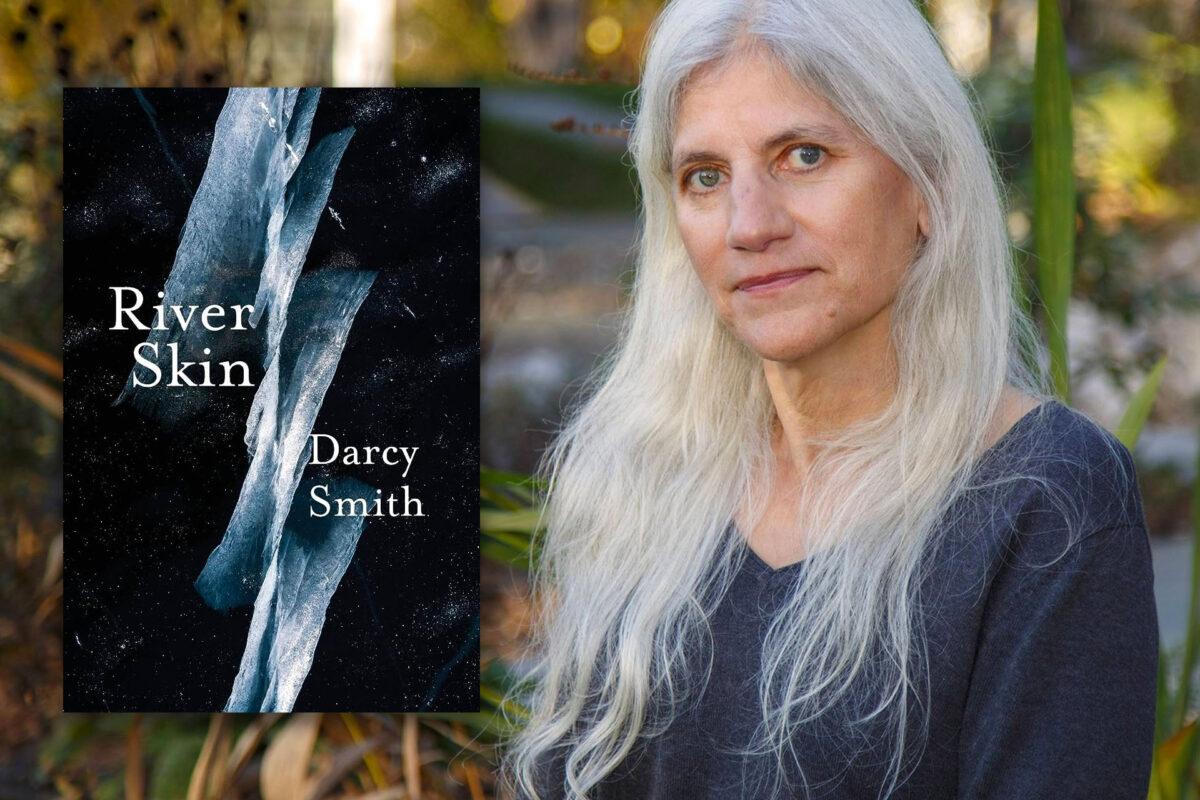Local author and reading host Harvey Havel has two new books available – The Wild Gypsy of Arbor Hill and A Rumination on the Role of Love During A Condition of Extreme Conservatism and Extreme Liberalism: A Political Essay. Both are available on Amazon.
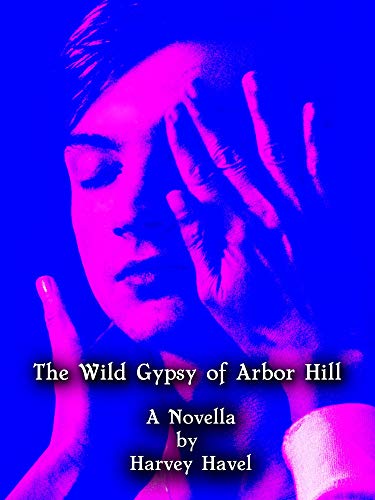 The Wild Gypsy of Arbor Hill is a novella that follows a college student whose family has inherited enough wealth to make life relatively carefree. Unfortunately, Charlie is also an alcoholic with bad grades just coming into enough maturity to attract the ladies. This novella follows his forays into both romance and financial destitution as he makes poor choices and finds himself on a downward spiral. How do individuals come to fall from privileged positions to the depths of degradation? How can Charlie return to a place of wealth both monetarily and psychologically, when love has played him for a fool and begins to threaten his life? Ambition, poverty and wealth, keys to learning how (and when) to love and let go, and how to gain life lessons outside of set routines and avenues of success keep Charlie and readers thinking: “…for my second visit to New Hampshire, my Dad brought up the topic of my new survivor’s life, and I would have to keep on pushing the money issue that entire weekend until he agreed to let me into to his high-class wallet. I could easily tell that he wanted me to return to Hartford. I didn’t want to, though. There were no degrees for what I had learned thus far anywhere in the Ivory Tower.” When Charlie feels stuck by his choices and newfound poverty, his life changes yet again. As questions of what he can get away with and what he can’t have in life bubble to the surface, readers are treated to a fine coming-of-age saga featuring a candid, determined young man whose possibilities include coming full circle and returning to what he’s rejected–albeit with a revised perspective. Growth, maturity, and love are all chronicled in a novella that is striking for its ability to portray a young man’s cloudy ambitions and the events that change him. Fiction readers who enjoy solid coming-of-age stories featuring new adult protagonists will relish Charlie’s evolution and his revelations about how to pursue the rest of his life, and how to look back at his choices with newfound, mature perspective.
The Wild Gypsy of Arbor Hill is a novella that follows a college student whose family has inherited enough wealth to make life relatively carefree. Unfortunately, Charlie is also an alcoholic with bad grades just coming into enough maturity to attract the ladies. This novella follows his forays into both romance and financial destitution as he makes poor choices and finds himself on a downward spiral. How do individuals come to fall from privileged positions to the depths of degradation? How can Charlie return to a place of wealth both monetarily and psychologically, when love has played him for a fool and begins to threaten his life? Ambition, poverty and wealth, keys to learning how (and when) to love and let go, and how to gain life lessons outside of set routines and avenues of success keep Charlie and readers thinking: “…for my second visit to New Hampshire, my Dad brought up the topic of my new survivor’s life, and I would have to keep on pushing the money issue that entire weekend until he agreed to let me into to his high-class wallet. I could easily tell that he wanted me to return to Hartford. I didn’t want to, though. There were no degrees for what I had learned thus far anywhere in the Ivory Tower.” When Charlie feels stuck by his choices and newfound poverty, his life changes yet again. As questions of what he can get away with and what he can’t have in life bubble to the surface, readers are treated to a fine coming-of-age saga featuring a candid, determined young man whose possibilities include coming full circle and returning to what he’s rejected–albeit with a revised perspective. Growth, maturity, and love are all chronicled in a novella that is striking for its ability to portray a young man’s cloudy ambitions and the events that change him. Fiction readers who enjoy solid coming-of-age stories featuring new adult protagonists will relish Charlie’s evolution and his revelations about how to pursue the rest of his life, and how to look back at his choices with newfound, mature perspective.
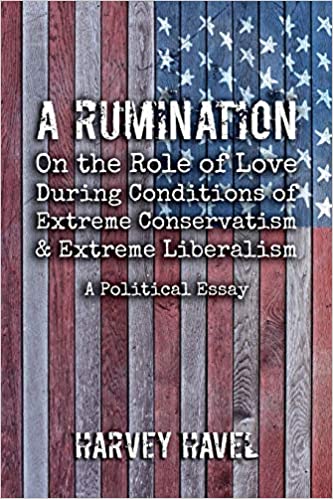 A Rumination begins with a now familiar observation, at once a diagnosis and an expression of concern: America is cleaved into two deeply divergent political groups, a “conflicted duopoly” more than a cohesive whole. Havel describes that split in terms of the ideological contest between conservatism (or capitalism—he routinely conflates the two) and socialism and frets that the U.S. is on the precipice of devolving into an extreme version of one of these dogmas, a development that could lead to violent revolt. He phrases the issue with a vague alarmism that typifies the book as a whole: “If we do not compromise and cooperate at this time, and if this cooperation is somehow veiled or hidden from a blood-thirsty public, then this condition will worsen and lead to our nation’s demise, maybe not right away, but definitely in the near future.” In order to find the resources for a future détente, the author investigates the nature of love, which is, among other things, “the responsible ability to compromise.” Havel surveys three historical expressions of love — eros, philia, and agape — and the possibility of their emergence within different political systems. He concludes that agape, a general love for humankind, expressed as a faith in a transcendent force or being, is both possible and necessary for the country to collectively forge common ground.
A Rumination begins with a now familiar observation, at once a diagnosis and an expression of concern: America is cleaved into two deeply divergent political groups, a “conflicted duopoly” more than a cohesive whole. Havel describes that split in terms of the ideological contest between conservatism (or capitalism—he routinely conflates the two) and socialism and frets that the U.S. is on the precipice of devolving into an extreme version of one of these dogmas, a development that could lead to violent revolt. He phrases the issue with a vague alarmism that typifies the book as a whole: “If we do not compromise and cooperate at this time, and if this cooperation is somehow veiled or hidden from a blood-thirsty public, then this condition will worsen and lead to our nation’s demise, maybe not right away, but definitely in the near future.” In order to find the resources for a future détente, the author investigates the nature of love, which is, among other things, “the responsible ability to compromise.” Havel surveys three historical expressions of love — eros, philia, and agape — and the possibility of their emergence within different political systems. He concludes that agape, a general love for humankind, expressed as a faith in a transcendent force or being, is both possible and necessary for the country to collectively forge common ground.

